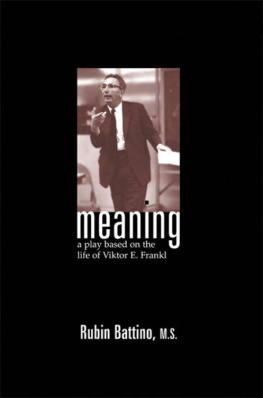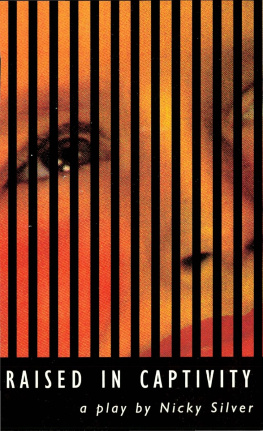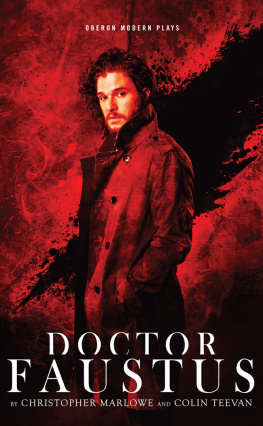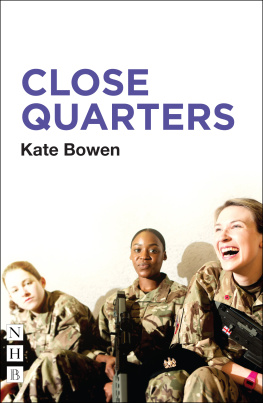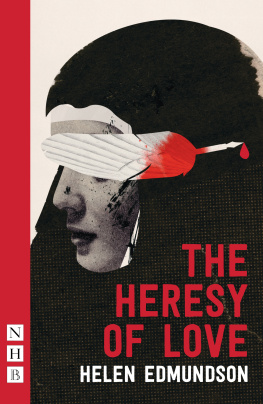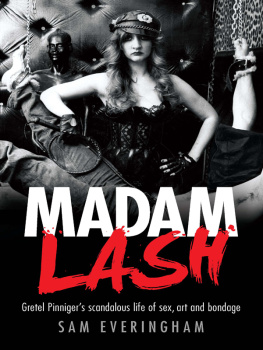Permission to use and adapt Frankls words for this biographical drama from the following sources is gratefully acknowledged:
Frankl, V.E., The Doctor and the Soul. From Psychotherapy to Logotherapy (New York: Vintage Books (Random House), 1955/1986).
Frankl, V.E., Mans Search for Meaning (New York: Simon and Schuster, 1959/1984).
Frankl, V.E., Psychotherapy and Existentialism (New York: Washington Square Press (Pocket Books), 1967).
Frankl, V.E., The Will to Meaning. Foundations and Applications of Logotherapy (New York: A Meridian Book (Plume) 1969/1988).
Frankl, V.E., The Unheard Cry for Meaning (New York: A Touchstone Book (Simon and Schuster, 1978).
Frankl, V.E., Viktor Frankl. Recollections. An Autobiography (Cambridge, MA: Perseus Publishing, 2000).
We gratefully acknowledge the following sources for the photographs reproduced in this book.
Bartoszewski, W. (1968). Warsaw Death Ring. 19391944. Drukarnia Zwiazkowa w Krakowie, Poland.
Frankl, V.E. (2000). Viktor Frankl. Recollections. An Autobiography. Cambridge, MA: Perseus Publishing.
Zelizer, B. (2000). Visual Culture and The Holocaust. New Brunswick, NJ: Rutgers University Press.
Klingberg, H. (2001). When Life Calls Out to Us. The Love and Lifework of Viktor and Elly Frankl. New York: Doubleday.
Fischel, J.R. (1998). The Holocaust. Westport, CT: Greenwood Press.
Hartmann, E. (1995). In the Camps. New York: W.W. Norton & Company.
Poznanski, S. (1963). Struggle, Death, Memory. 19391945.Warsaw, Poland: P.P. Wydawnictwa Artystyczne I Filmowe (Artistic and Film Publications, State Enterprise).
Viktor Frankl Institute, Langwiesgasse 6, A-1140, Vienna, Austria.
Albert Camus wrote in The First Man, There are people who vindicate the world, who help others just by their presence.
For those of us who have encountered these precious souls who seem to vindicate the world, it may be difficult to describe the qualities that make them different from others, but we know when we have been touched by them. Their mere presence seems to charge the moment, giving sudden depth and clarity to simply being alive. Often, these people have suffered greatly; they are the wounded healers who have taken their own suffering and made it a resource from which to draw the strength and empathy to help others.
Viktor Frankl was a man whose presence vindicated the world. I was privileged to know him and his family. I was among the multitudes who admired him, learned from him, and loved him unabashedly. I am a better man for having known him.
As a psychologist, I try to define the driving passion of such prodigious souls. What is it that allows a human being to bear, and even to transcend, seemingly unbearable burdensto thrive where another might wither? For Frankl, the answer was in a simple little word that contains the world: meaning. He was the high priest of meaning, and it was a sacred word to him, without which there could be no true motivation.
Viktor E. Frankl, M.D., Ph.D., was born in Vienna, Austria, on March 26, 1905, and he died there on September 2, 1997. He was Professor of Neurology and Psychiatry at the University of Vienna. A guest professor at several universities in the United States, he held 29 honorary doctorates from universities throughout the world. During World War II, he spent three years at Auschwitz, Dachau, and other concentration camps. Frankls 32 books appear in 26 languages. According to a Library of Congress poll, his Mans Search for Meaning is one of the ten most influential books among readers in the United States.
Frankl was the founder of Logotherapy, the third Viennese school of psychiatry, Freudian and Adlerian being the other two. Logotherapy maintains that there are three main avenues to creating meaning in life: the first is through deeds and working; the second is through relationships (loving and experiences); and the third is through facing a difficult fate and then building upon that challenge in order to help others.
Meaning: A Play Based on the Life of Viktor Frankl brings Frankl to life in full dimensionhis spirit, determination, wisdom, and integrity. Battino has chosen to set the play for the most part during the Holocaust, bringing into sharp focus the extraordinary power of this man to extract from the bleakest of circumstances a reason to live. After all, in contradiction, there is inherent drama. And, while this is a play written in homage to Viktor Frankl, it is, more than that, a play about love and meaning, no matter that reality seems to be calling for something quite different. In these pages, we are reminded of what it is to live profoundly, as we have the opportunity to be in Frankls presence once again.
Jeffrey K. Zeig, Ph.D.
Director of The Milton H. Erickson Foundation,
President of Zeig, Tucker & Theisen, Inc., Publishers.
I have visited Vienna many times. On one of those occasions, perhaps fifteen or more years ago, I had occasion to call Dr Frankl to ask if I could see him. He invited me to a lecture he was giving to some visiting Americans. Afterwards, we chatted briefly. He was as I expected: charming, witty, erudite, and full of an irrepressible passion for life. He exuded energy, vitality, and compassion. I had read many of his books, listened repeatedly to audiotapes, and watched him on videotapes. At another time in an audience of more than five thousand therapists in Anaheim when he received a standing ovation before he talked.
At some point I conceived of the idea of writing a play about Frankl and his life. (As a hobby, I participate in community theater and have written more than one dozen plays.) On a trip to Vienna about six years ago I called and was graciously invited to visit with him and then to join him and his wife Elly for lunch. After some conversation I broached the idea of writing a play. Frankl rightly surmised that I was requesting his permission for this project, maybe even his blessing! The idea of a blessing may appear to be unusual, but there is in Jewish tradition the idea of the Lamed-Vov, 36 unknown saintly men who are alive at any given time. It is on their behalf that God allows the world to continue to exist. To my mind, Frankl was one of this group. In response to my query, he responded quite appropriately that I was, of course, free to write whatever I wishedI did not need his approval or permission. We had a lovely lunch at a nearby Italian restaurant. Although Frankls family have seen this play, that is all.
Before I began to write, I had the challenge of how to organize in dramatic form a presentation of this mans life. Reading his autobiography (1997, and see other references below) and his most famous book, Mans Search for Meaning (1984), told me that the most dramatic parts of his life were the war years spent in Nazi concentration camps. The rest of his long and productive life seemed to be an elaboration of the themes discovered in his youth, which were expanded and consolidated during the concentration camp years. The play would have few characters. In explaining the project to my niece Katharine Solomon and my wife, I hit upon the idea of writing the play in a Brechtian style with many scenes illustrated by projected photographs on a bare stage, and with title boards indicating the nature of each scene. So, there are 24 scenes, mostly set in the concentration camps. (For a complete and authorized biography of the Frankls, see Klingberg (2001). Zeig, Tucker & Co., Inc. (3618 North 24th Street, Phoenix, AZ 85016. 877-850-0442, orders@zeigtucker.com), are the official source for all of Frankls audio and video tapes.)

